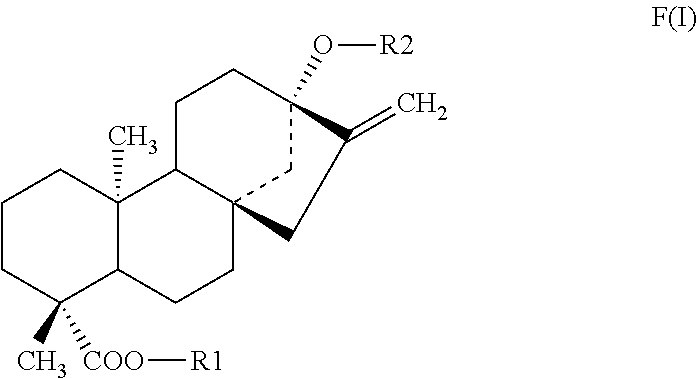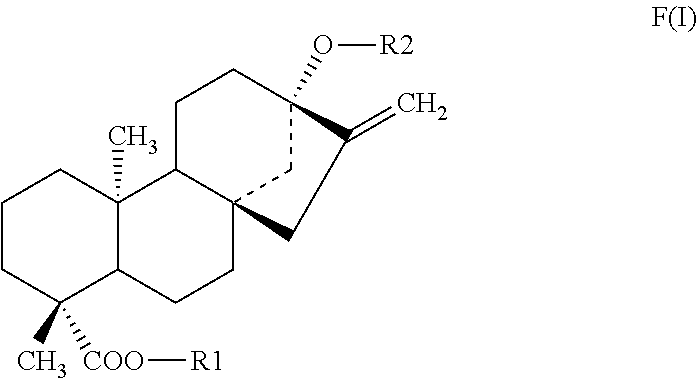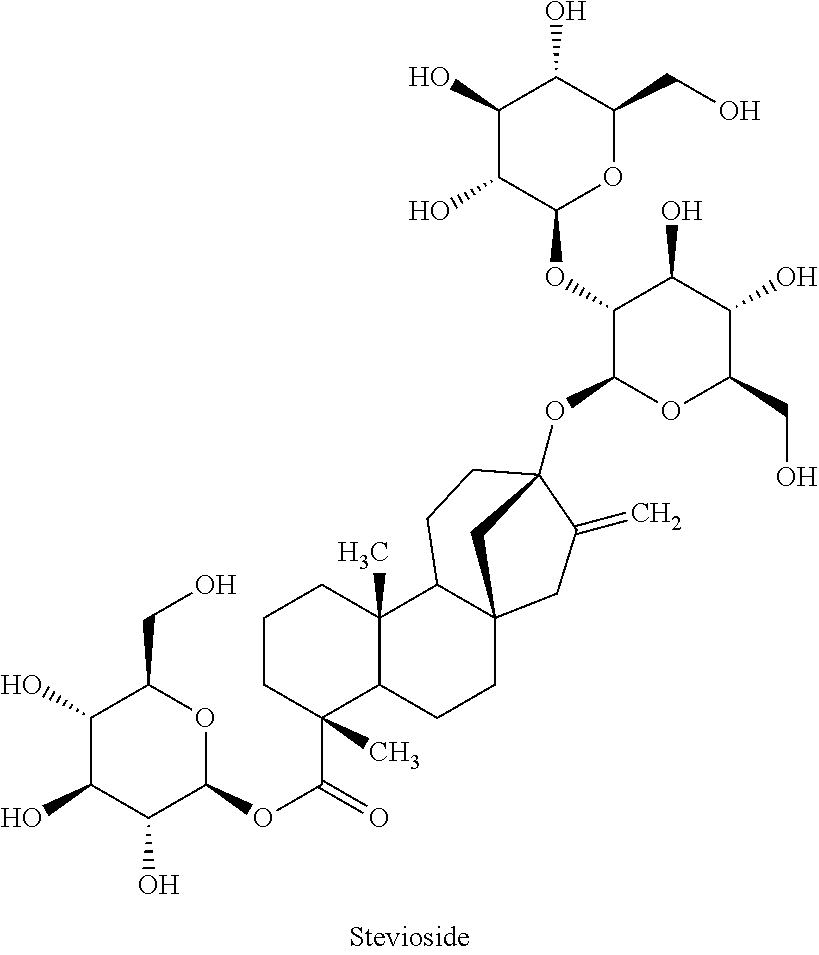Methods of Identifying Modulators of the Bitter Taste Receptor TAS2R44
a technology of bitter taste and receptor, which is applied in the field of methods of identifying modulators of the bitter taste receptor tas2r44, can solve the problems of limiting the use of these receptors in consumables, and none of these receptors have been shown to be activated before, so as to reduce the bitter taste/aftertaste and inhibit the response of tas2r44
- Summary
- Abstract
- Description
- Claims
- Application Information
AI Technical Summary
Benefits of technology
Problems solved by technology
Method used
Image
Examples
example 1
Generation of Human TAS2R44 Expression Vector
[0227]The full length gene of human TAS2R44 was amplified by polymerase chain reaction (PCR) using gene-specific primers that span the entire coding region.
[0228]The TAS2R44 cDNA was subcloned into an expression cassette based on either of the following plasmids / expression vectors: pcDNA3.1Zeo (Invitrogen, Carlsbad, Calif., US). These vectors contain within their multiple cloning sites the nucleotide sequence coding for the first 45 amino acids of the rat somatostatin receptor subtype 3 (included in SEQ ID NO:3, RSS tag) to facilitate cell surface targeting of the transgene, and the nucleotide sequence coding for the herpes simplex virus (HSV) glycoprotein D epitope (HSV epitope) for facilitating immunocytochemical detection, which is included in SEQ ID NO:4, HSV Tag.
[0229]RSS tag, TAS2R44, and the HSV tag are fused in frame in the hTASR2 construct of SEQ ID:5 to allow translation into the receptor protein. The resulting receptor cDNA in ...
example 2
Example 2a
Generation of Stable Cell Lines
[0231]HEK293T / Gα16-gustducin 44 cells were used; they are formed as described in WO 2004 / 055048. The host cell line HEK-293T is commercially available from the American Tissue Culture Collection (ATCC), ATCC®# CRL-11268
example 2b
Transient Transfection / Expression of TAS2R44 in HEK293T / Gα16-Gustducin 44 Cells
[0232]On day 0, the HEK293T / Gα16-gustducin 44 cells are plated in 96-well black wall, clear-bottom plates at a density of 14,000 cells per well and grown overnight in growth media (DMEM with 10% (v / v) heat-inactivated fetal bovine serum, 2 mM L-glutamine, 100 units / ml penicillin, 100 μg / ml streptomycin).
[0233]On day 1, the media is changed to an antibiotic-free and serum-free DMEM.
[0234]The cells are transfected with Lipofectamine 2000 (Invitrogen) according to the manufacturers recommendations.
[0235]Per well of a 96-well plate, 150 ng of vector DNA (TAS2R44 expression vector of example 1) is diluted in 12.5 μl of DMEM. In a second tube, 0.3 μl of Lipofectamine 2000 is diluted in 12.5 μl of DMEM and incubated for 5 min at room temperature. After the 5 min, both solutions are mixed and incubated for 20 min at RT. The growth medium in the plate is exchanged by 50 μl of DMEM and 25 μl of the lipofectamine / DN...
PUM
 Login to View More
Login to View More Abstract
Description
Claims
Application Information
 Login to View More
Login to View More - R&D
- Intellectual Property
- Life Sciences
- Materials
- Tech Scout
- Unparalleled Data Quality
- Higher Quality Content
- 60% Fewer Hallucinations
Browse by: Latest US Patents, China's latest patents, Technical Efficacy Thesaurus, Application Domain, Technology Topic, Popular Technical Reports.
© 2025 PatSnap. All rights reserved.Legal|Privacy policy|Modern Slavery Act Transparency Statement|Sitemap|About US| Contact US: help@patsnap.com



